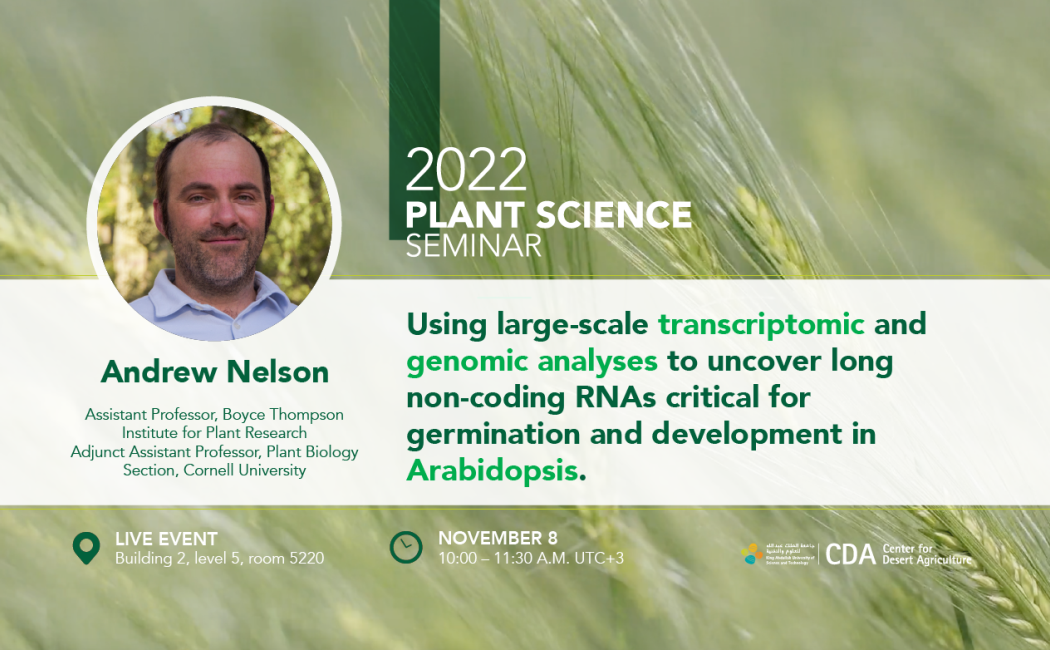Detail

Using large-scale transcriptomic and genomic analyses to uncover long non-coding RNAs critical for germination and development in Arabidopsis - by Prof. Andrew Nelson
Speaker: Andrew Nelson
Assistant Professor, Boyce Thompson Institute for Plant Research (US)
Adjunct Assistant Professor, Plant Biology Section, Cornell University (US)
– Hosted by Professor Monika Chodasiewicz
Join us in building 2, level 5, conference room 5220. Light refreshments will be served before the seminar.
If you are unable to attend in person, you can follow the seminar on Zoom.
Abstract
Long intergenic noncoding RNAs (lincRNAs) are a large yet enigmatic class of eukaryotic transcripts that can have a wide array of critical biological functions. The wealth of RNA-seq data available for plants provides the opportunity to implement a harmonized identification and annotation effort for lincRNAs that enables cross-species functional and genomic comparisons as well as prioritization of functional candidates. In this seminar, we present a synopsis of recent work from our group describing the functional annotation of lincRNAs in four Brassicaceae: Arabidopsis thaliana, Camelina sativa, Brassica rapa, and Eutrema salsugineum. We then describe genetic, biochemical, and genomic efforts to begin functionally characterizing several Brassicaceae-conserved lincRNAs associated with germination and development in Arabidopsis.
About the speaker
Andrew Nelson is an Assistant Professor at the Boyce Thompson Institute (BTI) for Plant Research (US) and an Adjunct Assistant Professor in the Plant Biology Section at Cornell (US). He completed his PhD in 2012 in Biochemistry and Biophysics in the lab of Dorothy Shippen at Texas A&M University (US). He was a Postdoc with Dr. Mark Beilstein and Dr. Eric Lyons at the University of Arizona (US) where he took evolutionary, comparative genomic, and bioinformatic approaches to identify functionally conserved long non-coding RNAs across the mustard lineage. He then became an independently funded Research Scientist, also at the University of Arizona, prior to joining BTI in 2019. His work currently focuses on RNA mediated mechanisms of eukaryotic stress responses, with a particular focus on plants.